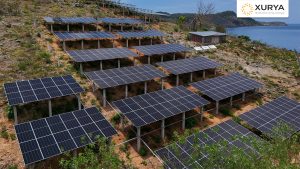Jakarta – Climate Group, an international non-profit organisation, released a report titled “Financing the Energy Transition: How Governments Can Maximize Corporate Investment”. The report reveals policy barriers that prevent the acceleration of renewable energy use in some of the world’s largest economies.
The Climate Group’s RE100 initiative, which involves more than 400 companies, highlights these companies’ commitment to using 100% renewable electricity in their operations.
While these companies invest billions of dollars to achieve this goal, policy and regulatory barriers are holding back investment in renewable electricity in many locations.
Sam Kimmins, Climate Group’s Energy Director, says renewable energy is the gold that should be up for grabs in the 21st century. But many businesses, states, regions and countries are still missing out.
“It is important that governments take steps to open their markets to corporate investment in cheap, clean, renewable electricity,” Kimmins said in a written statement.
The Climate Group report focuses on eight G20 countries: Argentina, China, Japan, Indonesia, India, Mexico, South Korea, and South Africa. Kimmins emphasised that common policy gaps in these countries exemplify the challenges many countries worldwide will face.
For example, the report highlights a policy in South Korea that requires solar facilities to be located at a minimum distance of 100 to 1,000 meters from residential areas and roads. This policy has led to around 57% of local governments in South Korea having restrictions that limit solar development in the region.
The Climate Group report identified three common themes of policy barriers. These include the availability of renewable electricity, the accessibility of electricity for businesses, and the affordability of renewable electricity in some markets.
The report also provides policy recommendations to help countries unlock the economic potential of renewable energy, including building a supportive regulatory ecosystem and improving renewable energy transparency and certificates.
Kimmins emphasised that during COP28, countries need to remove common policy barriers, such as the use of fossil fuels, to ensure the tripling of renewable energy capacity by 2030, as committed by the G20. (Hartatik)















